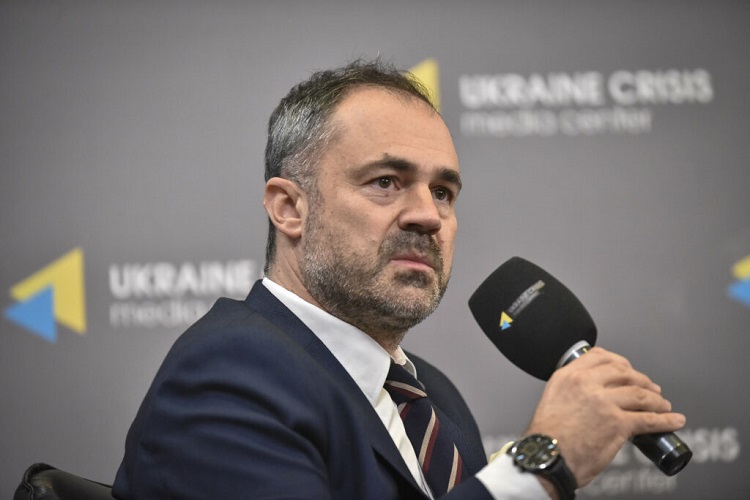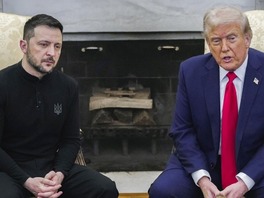The conflict along the Ukrainian-Polish border persists. Despite the unblocking of the 'Yagodyn-Dorohusk' crossing on December 11th, Polish carriers are threatening to re-impose a blockade on December 18th. Nevertheless, the change in government in Poland raises hope that the situation may improve in the near future. In an interview with Apostrophe, Szymon Waszczyn, the head of the International Association of Polish Entrepreneurs in Ukraine, discussed the losses suffered by Polish companies and expressed his views on the strategic importance of cooperation between the two countries.
– Tell us about your organization. Am I getting this right that your organization consists of entrepreneurs who work simultaneously in both Poland and Ukraine?
– Our Association comprises firms with Polish capital operating within Ukraine. Therefore, our members are owners and executives of these companies. We are the sole union of Polish enterprises registered in Ukraine. Presently, our membership totals around 80 companies, ranging from large enterprises to medium and small-sized ones. Among the notable large enterprises are PZU, Kredobank, and the airline company LOT.
– How significantly has the blockade of the Polish-Ukrainian border affected your organization?
– Directly. We sell goods in Ukraine that are either manufactured or sourced in Poland. Therefore, we had no alternatives for the goods that were blocked at the border.
– How substantial are the losses?
– We lack precise data at the moment. Currently, each company is individually assessing its losses for the period, at least from November 6th to December 6th. However, if we refer to the reports from the Ukrainian Ministry of Finance regarding the amount of Polish goods imported in October compared to November, we observe a difference of several billion dollars. The import level has dropped approximately 30%.
Personally, I am the CEO of Bolix, a company specializing in building façade insulation. We were unable to import any shipments of goods from Poland in November, and there have been no deliveries so far in December.
– Indeed, the ones bearing the brunt in practical terms are the ultimate link—the Ukrainian consumers.
– Indeed, that's the case. Throughout November, prices for products in Ukraine increased by 5-10%. The prices for liquefied gas surged by 30%. The impact is felt across all segments of the population.
 Szymon Waszczyn also volunteers in Ukraine
Szymon Waszczyn also volunteers in Ukraine
– Have you been in communication with Polish carriers?
– We have persistent communication. The reason is that our goods primarily enter Ukraine through Polish companies. For instance, none of the carriers I collaborate with daily for many years took part in the blockade. I have spoken with members of our Association, and they also confirm that none have had collaboration with the carriers engaged in the border blockade.
The key lies in the understanding among these carriers that an open market is unfolding. Ukraine stands on the threshold of EU accession negotiations. Therefore, the issue of a free market and a conducive environment will be highly relevant in the near future.
It is crucial to discuss and comprehend this within a mathematical model that allows coexistence and collaboration rather than border blockades.
It's unlikely that Brussels would find a solution that satisfies the Polish carriers who participated in the border blockade. However, the blockade itself is unacceptable, as it contradicts humanitarian concerns and the crucial strategic partnership between Poland and Ukraine. Poland needs to work in close collaboration with Ukraine on matters of national security.
– And yet, are you aware of the root cause behind the situation at the border?
– The direct rationale is that Polish carriers want the system of permits for the logistics services for Ukrainian carriers to be returned.
A total of 165,000 such permits were issued annually. However, at the onset of Russia's full-scale invasion in Ukraine, a deal was struck between the European Commission and the Ukrainian government, which abolished the permit system. This resulted in an increase in transport volumes from Ukrainian companies, negatively impacting Polish carriers in terms of pricing. Ukrainian companies offer their services at slightly lower rates than their Polish counterparts.
However, the issue essentially revolves around a difference of 15-20%. In any case, this could have been resolved diplomatically and through a mathematical model, potentially in the form of state subsidies for carriers, but certainly not through border blockades.
Undoubtedly, the negotiating process fell short. Unfortunately, the situation is being exploited for political purposes. However, the most pressing issue that has arisen and will persist for at least the next few months is that we, as Polish companies in Ukraine, have lost the status of trustworthy partners who reliably deliver goods and fulfill all obligations—be it for supermarkets, construction sites, or the energy system.
Their second demand is the abandonment of the electronic queue, and the third is permission for the immediate crossing of empty Polish trucks at the border, bypassing the queue.
They also seek to block the operations of Ukrainian transport companies that were established after the war began. They assert that these entities may have been created especially to offer services within the EU at prices lower than Polish.
The final demand is stringent control over the technical specifications of vehicles arriving from Ukraine. The claim is that the technical condition of Ukrainian vehicles is inferior to that of Polish ones.
– There is another opinion that the Poles simply want Ukrainian carriers to bring Ukrainian goods to hubs on the territory of Poland near the border, leave them there, and Polish carriers to deliver them across the EU.
– I haven't heard of such a demand among the official requirements. However, even if it were, it would likely be irrelevant because of the principles of free trade and free movement. Such an approach would essentially resemble sanctions against Ukraine. Obstacles to the free movement of goods or services contradict our constitution, making them impractical.
– The border blockade marks the second significant dispute between Ukraine and Poland, following the earlier disagreement over Ukrainian grain. The question of why our politicians cannot reach an agreement?
– Numerous errors were made in regulating grain transportation through Poland. Diplomatically, both the Polish and Ukrainian authorities have indulged in excessive rhetoric, laden with unnecessary words.
However, the grain issue could have been encapsulated within a specific mathematical model. All matters related to pricing are solvable.
However, there were a series of diplomatic missteps and perhaps a reluctance to strategically address this issue. There is a recent change in government in Poland. The previous administration did not address the border unblocking.
– Can we expect that our leaders will eventually reach an agreement?
– We are essentially in the initial phase of issues that will arise at the intersection of prices for services or goods in the European Union and in Ukraine. It's like a massive tanker, 200 meters long, altering its course. When the maneuver begins, you only hear the creaking of metal, but you haven't yet seen the maneuver itself. It's only after a certain time that you realize the maneuver is happening. The border blockade has essentially become the first such creak. A very mature process is needed to address these challenges.
Because now competition will begin between producers of chicken or energy resources. And there will be a difference in interests between Polish and Ukrainian businessmen. It's impractical for each group to block the borders. What we need is an understanding that conflicts will arise, and it's essential to initiate this dialogue.
 Szymon Waszczyn
Szymon Waszczyn
– How do you think the initiation of the negotiation process for Ukraine's accession to the EU will impact the situation?
– I believe initiating the negotiation process could expedite issue resolution. Compensation for Polish carriers and subsidies for Polish entrepreneurs facing initial losses during Ukraine's EU integration could be considered. While such adjustments are normal, we must understand that the process will take several years. However, it is absolutely unacceptable for any group to block borders.
It's important to understand that the current unlocking is being initiated by Polish municipalities – cities and communities with border crossing points. They are unlocking the borders based on the safety concerns of their residents. Local authorities are doing this based on statements made by us – Polish companies and organizations. In these statements, we officially address these cities and community leaders to ensure a safe and smooth border crossing.
But the possibility of a recurrence of the blockade exists. Presumably, protesters may take legal action against the communities and city councils, aiming to assert the legitimacy of their right to assemble and protest.
A new government in Poland could potentially accelerate the border regulation process. The previous government was essentially formed for a two-week period, and the new ministers will finally start making decisions.
– Mr. Szymon, it seems that Ukrainians are a nation that is never fully satisfied. There is already a level of doubt surrounding Donald Tusk, and expectations regarding the resolution of the carrier issue are not particularly high. What are your thoughts on this matter?
– The victory of Ukraine in the Russian-Ukrainian war is in Poland's interest. It is strategically important for Poland to keep the as far as possible – on the eastern borders of Ukraine. Of course, it is in the interest of Polish carriers to earn more, but that is a secondary concern.
Thus, I believe that the Tusk government will take a global perspective and make decisions based on the scale of importance for Poland's security.
I believe that Tusk's policies will be forward-looking, constructed with a perspective of 7-10 years. I trust that the current coalition will win the next elections. For Ukraine and our relations, it would be beneficial if Ukraine joins the EU under the Tusk government. This government has good relations with the European Commission. Of course, decisions will take into account Poland's interests. However, the security of Ukraine is strategically crucial for us because it directly impacts Poland's security.






